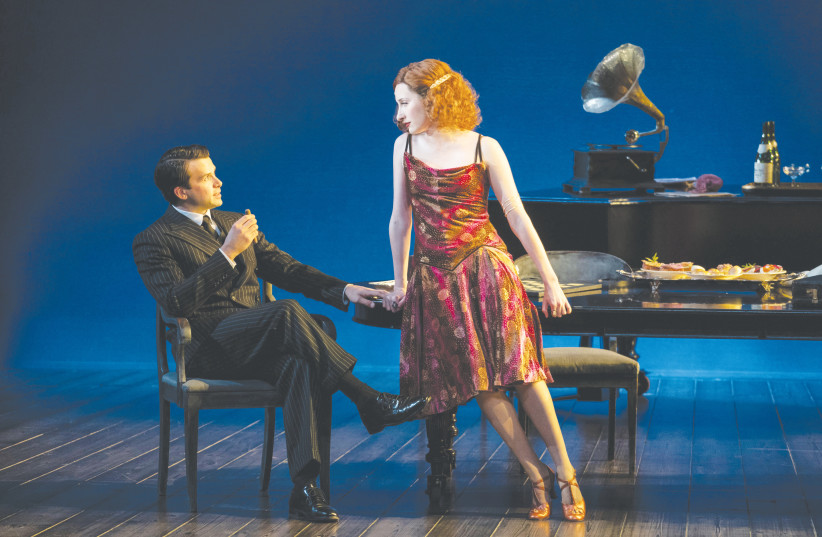Being Jewish is a great honor that comes with the caveat that someone might want to murder you.
In Tom Stoppard’s play Leopoldstadt, now on Broadway at the Longacre Theatre in Manhattan, a Jewish family in Vienna ponders different questions.
Is Theodor Herzl’s idea for a Jewish state realistic or a pipe dream? Will the threat of the Nazis pass like the wind or blow them away? Can barbarism win out over culture?
The play opens with a child putting a Jewish star ornament on a Christmas tree. This is a family that has assimilated, and some members have intermarried.
It is difficult to watch the characters try to be happy when the audience knows there is a ticking time bomb, and only some of them can hear the ticking.

There is a distraction when Hermann (David Krumholtz) is offended. His gentile wife, Gretl (Faye Castalow), has visited with a handsome young officer named Fritz, played by Arty Froushan. Hermann wants a letter of apology and would want much more if he really knew what took place.
While all of the cast is stellar, a few performances stand out. Krumholtz grounds the play as a man who feels a great responsibility to provide for and protect his family. As Eva, Caissie Levy brings good energy to the stage, while Eden Epstein, who plays Hermine, displays brightness and evokes a sense of hope.
Most impressive is Barndon Uranowitz, who plays Nathan. In the final scene, which takes place in 1955, he fires some fastballs at Leo, who doesn’t recall many of the things that took place when he was a child and never figured it very important to identify as a Jew. He also plays Ludwig in the first scene and is an intellectual who asks tough questions. Froushan also plays Leo.
Born Tomas Straussler in 1937, playwright Tom Stoppard fled Czechoslovakia as a child to escape the Nazis and eventually wound up in England. He’s won four Tony Awards. In 1999, he won the Oscar for Best Original Screenplay for the film Shakespeare in Love. He took his last name, Stoppard, from the British man who married his mother after his father’s death. For the majority of his life, he didn’t think of himself as Jewish, as his mother didn’t speak much of the past. He found out that members of his family had been killed in the Holocaust when he spoke with a relative in the 1990s.
With fine direction by Patrick Marber, who is also Jewish, it is no surprise that Leopoldstadt won the Olivier Award for Best New Play when it was performed in London in 2020.
There are elements of humor, as when there are jokes about a brit milah (circumcision), and moments of dread as we hear shouting, glass breaking and see police entering, one wearing a swastika armband, filling family members full of fear of what he might do. Matt Harrington brings the right amount of arrogance and evil to this role of an enforcer. The head of the family is asked to sign away his business, even though he thinks he has a trick up his sleeve to outsmart the Nazis.
In the final scene, we learn of the fate of some who were rounded up.
The play is written and performed in a manner that is gripping but not heavy-handed. It is scary to be a fly on the wall in a home of Jews trying to interpret the writing on the wall. Some have faith in humanity and argue that a civilized society with great music and art can’t allow such savage treatment to continue.
Wisely, there is no intermission so the tension builds and you are hit with a thunderbolt.
With this powerhouse of a play that examines different decades of a family, Stoppard shows that while much of his family’s blood was spilled, evil ultimately was not the winner. It is implicit that the best way to honor those who have been murdered is to make sure such an atrocity never happens again.
